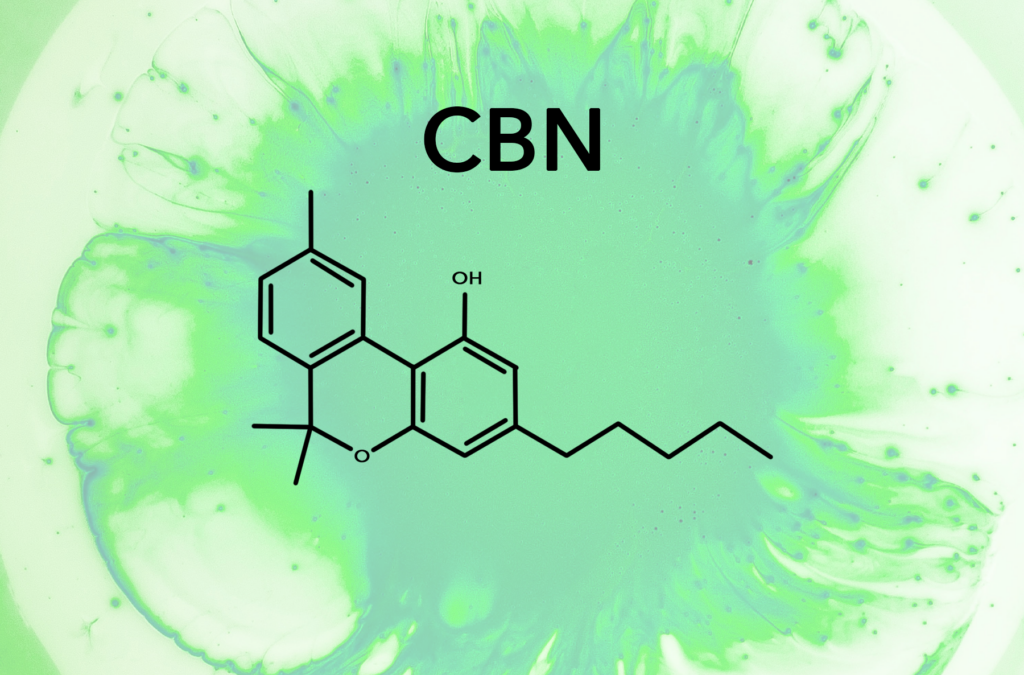People across the globe have sworn by the benefits of cannabis for thousands of years. While modern prohibition has held us back from understanding everything about the plant and its compounds, research is still underway on various cannabinoids. These days, it’s not uncommon for a new cannabinoid to catch the attention of researchers and the public alike. One such cannabinoid is CBN (short for Cannabinol). This minor cannabinoid has gained notoriety because of its relation to the significant cannabinoid CBD. Read on to learn more about it!
What is CBN?
CBN stands for cannabinol, which is an intoxicating cannabinoid extracted from cannabis. Although it has gained some popularity recently, it is not a new cannabinoid. It was first discovered right after THC in the 1960s. One thing that separates CBN from other cannabinoids is that it is only produced in very small quantities during the growth cycle of the cannabis plant. The majority of CBN develops as a degradation of THC; this happens when THC is exposed to light or air. CBN is molecularly similar to THC; however, its effects are different.
How Does THC Convert Into CBN?
THC is the primary psychoactive cannabinoid of the cannabis plant. When a cannabis plant and the THC in its trichomes get old, they start breaking down – especially under the influence of external factors like air, light, and temperature. This breakdown leads to the formation of Cannabinol (CBN). This process explains why CBN is not found in notable quantities in fresh or younger plants. CBN is a weaker counterpart of THC and only approximately 25% as effective as THC. CBN is an intoxicating cannabinoid unlike CBD; this property is also attributed to CBN’s relation to THC.
What is CBN Good For?
The research available on the benefits of CBN is still minimal. Nonetheless, evidence and consumer-based reports strongly back the following beneficial effects:
Pain Relief: A study showed that CBN improved fibromyalgia-based pain in the joints of rats under investigation. Furthermore, scientists found out that this effect could be enhanced by combining CBN with CBD. While further research is needed to determine if this is equally effective on human patients, anecdotal evidence is promising.
Neuroprotective Effect: In 2005, scientists found that CBN was capable of delaying the onset of ALS. This sclerotic disease affects the central nervous system cells, i.e. the brain and spinal cord. This study indicated the neuroprotective effects of CBN.
Sleep-inducing Effect: No need to worry about the sleepless nights anymore! CBN is a bit intoxicating and imparts a sedating property. Thus, it may help to relieve or reduce insomnia. However, some more research in this area is needed.
Anti-inflammatory Effects: Scientific study has shown that CBN plays some role in relieving and reducing inflammation, similar to other cannabinoids. This cannabinoid may help to ease arthritis, tendonitis, and related conditions.
What is the Difference Between CBN and THC?
CBN and THC are similar compounds, especially since CBN originates from THC. However, CBN is far less potent than THC. Hence, the intoxicating effects for most consumers are either minimal or absent. Contrarily, the euphoria or “high” from THC can be extreme and overwhelming for some.
What Research is Available on CBN?
Not a lot of research is available on this cannabinoid; however, the information that is out there backs up its therapeutic effects against diseases like:
Takeaway:
CBN is a fantastic, versatile cannabinoid that helps people who want weaker effects of THC to avoid a solid high or psychoactive feeling and can help promote restful sleep. If this sounds like a good fit for you, why not try a Passion Flower CBN vape?
Thanks for reading,

Social Share:


